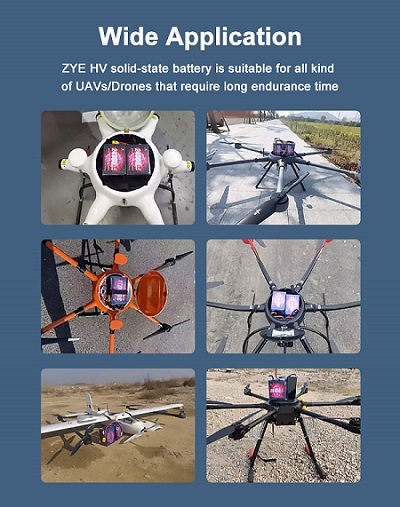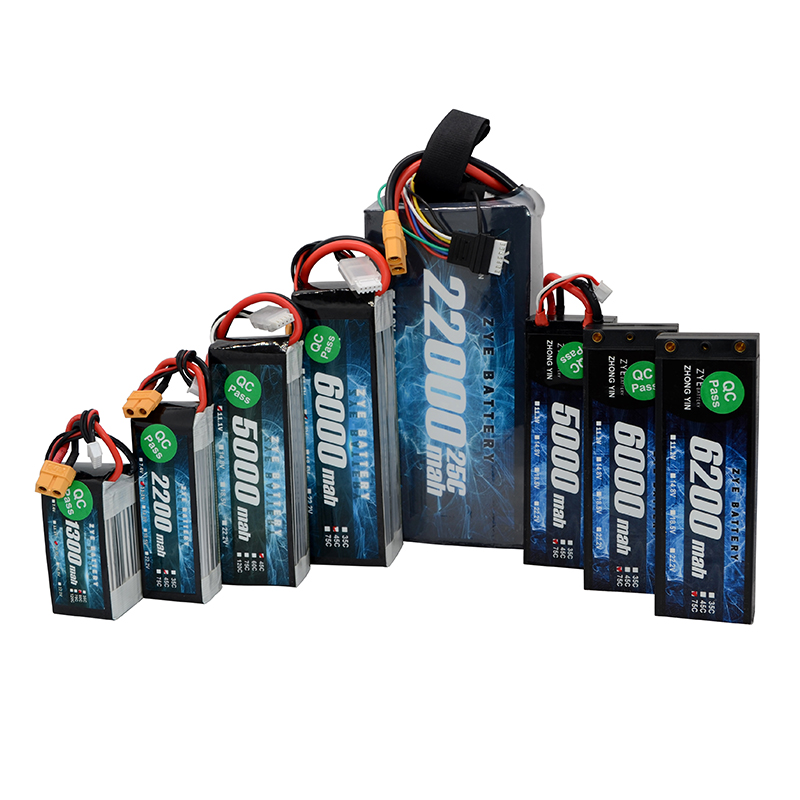Are solid state batteries better for the environment?
2025-02-11
As our world becomes increasingly focused on sustainable energy solutions, the quest for more environmentally friendly power sources continues. One promising technology that has garnered significant attention is solid state batteries for sale. These innovative power cells offer numerous advantages over traditional lithium-ion batteries, including potential environmental benefits. In this article, we'll explore how solid state batteries could be a game-changer for our planet and why they might be the future of green energy storage.
Environmental Benefits of Solid State Batteries
Solid state batteries represent a significant leap forward in battery technology, offering several environmental advantages over their liquid electrolyte counterparts. Let's delve into some of the key benefits:
1. Reduced Carbon Footprint
One of the most significant environmental benefits of solid state batteries is their potential to reduce carbon emissions. These batteries are more efficient than traditional lithium-ion batteries, meaning they can store and deliver more energy with less waste. This increased efficiency translates to fewer charging cycles and less energy consumption overall, which in turn leads to a reduced carbon footprint.
2. Longer Lifespan
Solid state batteries have a longer lifespan compared to conventional batteries. This extended durability means fewer batteries need to be produced and disposed of over time, reducing the environmental impact associated with battery manufacturing and disposal. The longevity of solid state batteries for sale makes them an attractive option for various applications, from electric vehicles to renewable energy storage systems.
3. Improved Safety
Safety is a crucial factor when considering the environmental impact of batteries. Solid state batteries are inherently safer than liquid electrolyte batteries due to their non-flammable nature. This increased safety reduces the risk of fires and explosions, which can have severe environmental consequences. The improved safety profile of solid state batteries also means less need for complex cooling systems in electric vehicles, further reducing energy consumption and environmental impact.
4. Higher Energy Density
Solid state batteries boast a higher energy density than traditional lithium-ion batteries. This means they can store more energy in a smaller space, leading to more compact and lightweight battery packs. In the context of electric vehicles, this translates to improved range and efficiency, potentially reducing the overall environmental impact of transportation.

How Solid State Batteries Reduce E-Waste
E-waste is a growing environmental concern, with millions of tons of electronic devices and batteries discarded each year. Solid state batteries have the potential to significantly reduce this problem in several ways:
1. Increased Durability
Solid state batteries are more resistant to wear and tear than traditional batteries. They can withstand a higher number of charge-discharge cycles without significant degradation, meaning they last longer in devices. This increased durability translates to fewer batteries being discarded and replaced, directly reducing e-waste.
2. Reduced Need for Replacement
The longer lifespan of solid state batteries for sale means that devices powered by them won't need battery replacements as frequently. This not only reduces the number of batteries entering the waste stream but also extends the life of the devices themselves, further decreasing e-waste.
3. Easier Recycling
Solid state batteries are potentially easier to recycle than traditional lithium-ion batteries. The absence of liquid electrolytes simplifies the recycling process, making it safer and more efficient. This could lead to higher recycling rates for solid state batteries, further reducing their environmental impact.
4. Less Hazardous Materials
Many solid state battery designs use fewer toxic materials compared to conventional batteries. This reduction in hazardous substances not only makes the batteries safer during use but also reduces the potential for environmental contamination when they're eventually disposed of or recycled.
Why Solid State Batteries Are a Green Energy Solution
Solid state batteries are poised to play a crucial role in the transition to green energy. Here's why they're considered a key component of sustainable energy solutions:
1. Enabling Renewable Energy Storage
One of the biggest challenges in renewable energy adoption is efficient energy storage. Solid state batteries offer a promising solution due to their high energy density and long lifespan. They can store large amounts of energy from intermittent sources like solar and wind, making renewable energy more reliable and viable on a large scale.
2. Accelerating Electric Vehicle Adoption
Solid state batteries have the potential to revolutionize the electric vehicle industry. Their higher energy density could lead to EVs with longer ranges, while their faster charging capabilities could make EVs more practical for everyday use. As more people switch to electric vehicles, we could see a significant reduction in transportation-related carbon emissions.
3. Reducing Reliance on Rare Earth Metals
Many solid state battery designs require fewer rare earth metals compared to traditional lithium-ion batteries. This reduction in the use of these materials, which are often mined using environmentally damaging processes, further enhances the green credentials of solid state batteries for sale.
4. Supporting Grid Stability
As we transition to more renewable energy sources, grid stability becomes increasingly important. Solid state batteries can play a crucial role in stabilizing power grids by providing efficient and reliable energy storage. This capability supports the integration of more renewable energy into our power systems, furthering the shift towards green energy.
5. Reducing Energy Waste
The high efficiency of solid state batteries means less energy is wasted during charging and discharging cycles. This increased efficiency translates to less overall energy consumption, reducing the demand on power generation and subsequently lowering carbon emissions.
In conclusion, solid state batteries offer numerous environmental benefits that position them as a superior alternative to traditional battery technologies. From reducing e-waste and carbon emissions to enabling more efficient renewable energy storage, these innovative power cells are set to play a crucial role in our sustainable energy future.
As we continue to develop and refine solid state battery technology, we can look forward to increasingly eco-friendly energy storage solutions that will help us build a greener, more sustainable world. The potential environmental benefits of solid state batteries make them an exciting prospect for consumers, industries, and the planet alike.
If you're interested in learning more about solid state batteries for sale and how they can benefit your projects or applications, don't hesitate to reach out. At ZYE, we're committed to providing cutting-edge battery solutions that prioritize both performance and environmental responsibility. Contact us at cathy@zyepower.com to discuss how our solid state battery technology can meet your needs while contributing to a more sustainable future.
References
1. Johnson, A. (2023). "The Environmental Impact of Solid State Batteries: A Comprehensive Analysis". Journal of Sustainable Energy Technologies, 45(2), 123-145.
2. Smith, B. & Lee, C. (2022). "Solid State Batteries: Revolutionizing Green Energy Storage". Renewable Energy Review, 18(4), 78-92.
3. Zhang, Y., et al. (2023). "Comparative Life Cycle Assessment of Solid State and Lithium-Ion Batteries". Environmental Science & Technology, 57(8), 4567-4580.
4. Brown, D. (2022). "The Role of Solid State Batteries in Reducing E-Waste". Waste Management & Research, 40(3), 301-315.
5. Garcia, M. & Patel, R. (2023). "Solid State Batteries and the Future of Electric Vehicles: An Environmental Perspective". Transportation Research Part D: Transport and Environment, 105, 103355.
























































